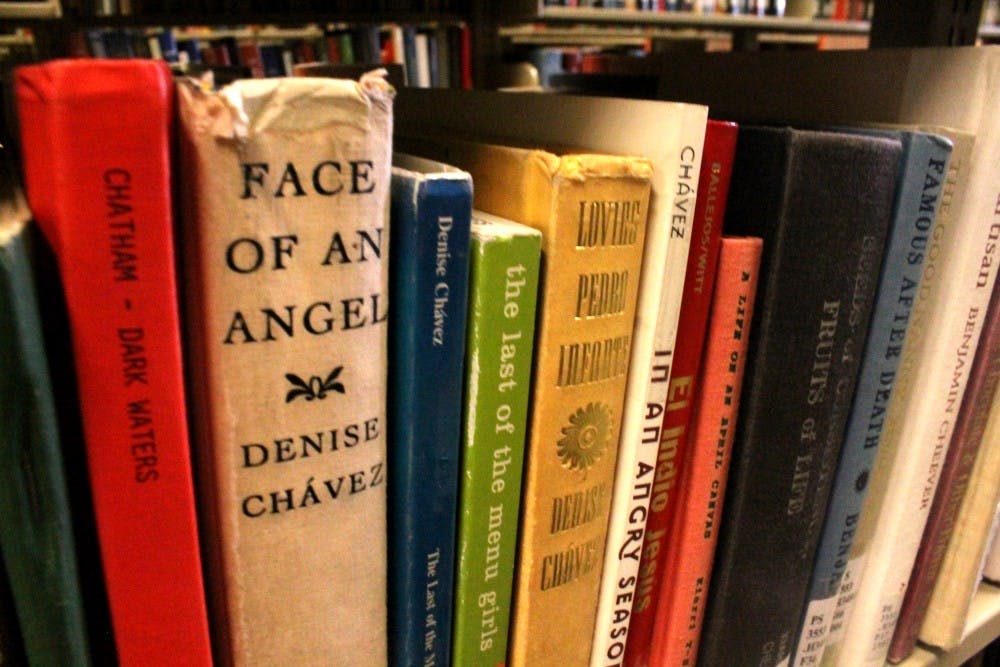The story of a young Latinx or Chicanx can be easily distorted through the white-washed lens of mainstream television and film. Literature expresses these stories much more purely, but one must put forth extra effort to find such narratives.
Still, a thirst for these stories exists in the heart of every young Chicanx, including Vanessa Fonseca, an incoming professor of multi-ethnic U.S. literature at the Polytechnic campus.
Fonseca recalled growing up in a rural town in New Mexico before pursuing her undergraduate degree at the University of New Mexico, where the question, "Where are people like me?" began to burn in the back of her head.
Eventually, a curious mind and a trip to Mexico to do fieldwork along the Camino Real manifested a lasting passion for Chicanx literature.
Fonseca said one of the most powerful things about Chicanx literature is where the narratives come from.
"It's someone's individual experience, but it's always intricately tied to the collective experience," she said.
Many works of Chicanx literature tell stories of people overcoming voices that discourage them, such as thevoices Fonseca said that she has heard first-hand and has steadfastly pushed past.
"We’ve always been told as Chicano scholars that you have to work twice as hard as everybody else," Fonseca explained. "People view you as inferior, and you have to think, 'What’s the best way to catch up to everybody else?'"
The relentless strength and resiliency that weaves itself throughout the Chicanx narrative is prevalent in works by authors like the late Michele Serros, who is one of Fonseca's favorites.
Fonseca said some of Serros' work examined the impacts of the demographic shift from generations of Chicanxs who were primarily farmworkers to those that were raised in middle-class areas of California.
Serros used these stories to express her feelings about being told she "wasn't good enough" as a Chicanx because she didn't speak Spanish or know about things like MEChA, the Movimiento Estudiantil Chicano de Aztlan.Fonseca said these experiences touch upon the powerful concept that identity isn't static, and that one's environment has a significant impact on that identity's potential to shift.
Of course, a study of Chicanx literature is not complete without well-renowned poet and novelist Sandra Cisneros, whose latest creation, "A House of My Own," was just released in October 2015.
Cisneros' first novel, "The House on Mango Street," was a classic coming-of-age story that still resonates with a new generation of young Latinxs juggling the complexities of culture and identity with the inevitable pains of personal maturity.
Margarita Cota-Cardenas, professor emerita of Spanish at ASU, also mentioned Cisneros as one of many profoundly influential women in contemporary Chicanx literature. Women like Cisneros fearlessly addressed the role of women in Chicanx society as well as their role within society at large.
"These are the women that impacted and put forth women’s visions of what our culture should be and what was lacking," she said. "I would have to say they were basically feminists!"
Cota-Cardenas is also an author. She said she heard contemporary tales of girls struggling to overcome the roles that have been imposed upon them as she conducted interviews for her second book, "Sanctuaries of the Heart." For example, two of the girls she interviewed said they had fathers who didn't want them to go to school.
Cota-Cardenas said this struggle has been alive for decades.
"These writers from the '70s began to question roles that were imposed upon us by our families and all that," she said.
Some of these writers can be found in "Infinite Divisions," an anthology of Chicanx literature that comes highly recommended by Cota-Cardenas.
One noteworthy contributor is Carmen Tafolla, a San Antonio, Texas native who has written more than 20 books.
Intersectionality, the overlapping of social identities, is almost as critical to discussions of racial identity as race itself. Author Ana Castillo, whom Cota-Cardenas recognized as an outspoken feminist writer of the LGBTQ community, is one of many Chicanxs addressing this. Castillo's work, including her Loverboy piece featured in the Washington Post, has received numerous awards.
English professor Elizabeth Horan named John Rechy as another notable Chicanx author.
Horan explained that Rechy grew up in El Paso, Texas, and went on to write provocative works such as "City of Night," which served as the basis for his documentary, "The Sexual Outlaw." This documentary confronted the oppression of homosexuals in L.A.
Additionally, Horan named "Barrio Boy" by Ernesto Galarza as one of her personal favorites. "Barrio Boy" examines a young boy's transition from life during the Mexican revolution to the segregated streets of California in the early twentieth century.
Galarza's novel has been required reading for public school students in many districts for many years; very convenient, considering Horan said she believes education is a part of the Chicanx experience that should continue being discussed.
"The experience of school is a place that is not always friendly," Horan said. "These are stories of how these writers have managed to make their way in that often troubled, openly racist environment."
Horan said another critical theme seen throughout Chicanx literature is the means by which Chicanxs have organized themselves to evoke changes in education and politics.
"That’s one (theme) you find in all of them," she said. "How does one survive intact and keep a confidence in themselves when the school culture can be conflict-ridden, and at same time, seems to be the only way to get any chance of work advancement?"
Survival seems to be the key driver throughout Chicanx literature — in spite of outside pressures, Chicanxs have proven for decades that, at any age or place in the world, they can and will survive.
Related Links:
Latinx representation making small, slow steps forward on the silver screen
What Latinx representation looks like on the big screen
Reach the reporter at celina.jimenez@asu.edu or follow @lina_lauren on Twitter.
Like The State Press on Facebook and follow @statepress on Twitter.




